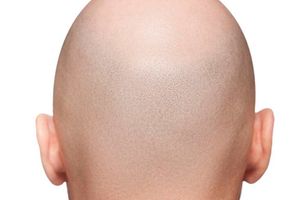Treatment options for hair loss in men

A surgical option to replace lost hair and encourage regrowth is a popular method of treating hair loss.
What you need to know:
- The treatment for hair loss is different depending on the type of alopecia or pattern baldness you have.
- Whatever your diagnosis, there are options available to help reduce hair loss and increase new growth.
When considering what method to use, it is essential to talk with a dermatologist about which one is best suited for your needs.
Men are likelier than women to experience hair loss. Several factors contribute to male pattern balding, including genetics and age. Still, external influences such as stress and diet can lead to problems with the scalp's natural ability to grow healthy hair.
Hair loss
Hair loss is a natural process that happens as the body ages and typically begins around age thirty to forty. However, some people can experience hair loss as early as in their teens.
Hair has a four-phase cycle: Growth (anagen), resting (telogen), transition stage (catagen), and shedding (exogen). All these stages can be affected by factors such as health, age, among others. As people grow older, hair follicles become smaller for each hair type, resulting in less volume of hair overall.
Causes of hair loss
Hair loss in men is generally caused by three factors: genetics, hormones, and age.
Genetic hair loss is the most common type and usually begins in the late twenties for most males.
Secondly, both men and women have DHT (dihydrotestosterone). When your body produces too much, it begins to block the hair follicles, preventing new hair growth.
The final cause is age. As a person ages, hair follicles stop producing new hair leading to thinning or complete loss of hairs along with receding hairlines. However, there are several ways you can control the process of hair loss.
Treating hair loss
- Minoxidil helps slow down hair loss and stimulate new growth for people with pattern baldness. Minoxidil does not cure male-pattern baldness, but it may prevent further thinning of your hair by stimulating hair growth and prolonging hair follicles' anagen (growth) phase.
- Another treatment option is Propecia, a pill that helps to reduce DHT levels in your body by blocking them from attaching themselves to sensitive spots on your scalp. It may take several months before you notice any changes.
- Hair replacement surgery – a surgical option to replace lost hair and encourage regrowth, is another popular method.
There are four different types of treatments for men's hair loss including:
- Hair transplant, a surgical procedure that takes individual hairs from the back and/or sides of your scalp (donor area) and moves them to balding areas. It will take several months before you can see any results since transplanted hair needs time to grow in its new location.
- Flap surgery is another type of hair transplant surgery. It involves removing a patch of skin that contains hair along with its underlying blood supply from the back or side of your scalp and moving it to areas where you need more density.
- Scalp reduction, this method can be used on people who have lost most of their hair due to scarring alopecia. The surgeon will remove scarred areas of your scalp and then reposition the hair-bearing skin to cover the bald spot.
- Tissue expansion, the method uses an expandable tissue expander to stretch the scalp skin. Once it is stretched, your surgeon may remove hair-bearing areas of your scalp and sew the scalp beneath for new hair to grow.
- Laser treatment, this method is ideal for people dealing with hair loss due to alopecia or scarring. It uses low-level lasers to stimulate the cells of your scalp and promote new growth.
Natural remedies
- Biotin - This supplement contains vitamin B. It has been known to help hair grow faster and thicker in some cases when taken regularly.
- Hair oils- Oils such as coconut and olive oil may help to reduce breakage and add shine. Coconut oil is a natural remedy for hair loss that has been used for years. In addition, coconut oil contains vitamins and proteins needed for healthy hair growth.
- Another natural remedy is onion juice. Due to its antiseptic and anti-inflammatory properties, onion juice can help treat hair loss. In addition, onion juice also stimulates blood circulation in the scalp, thus promoting the healthy growth of new hair.



